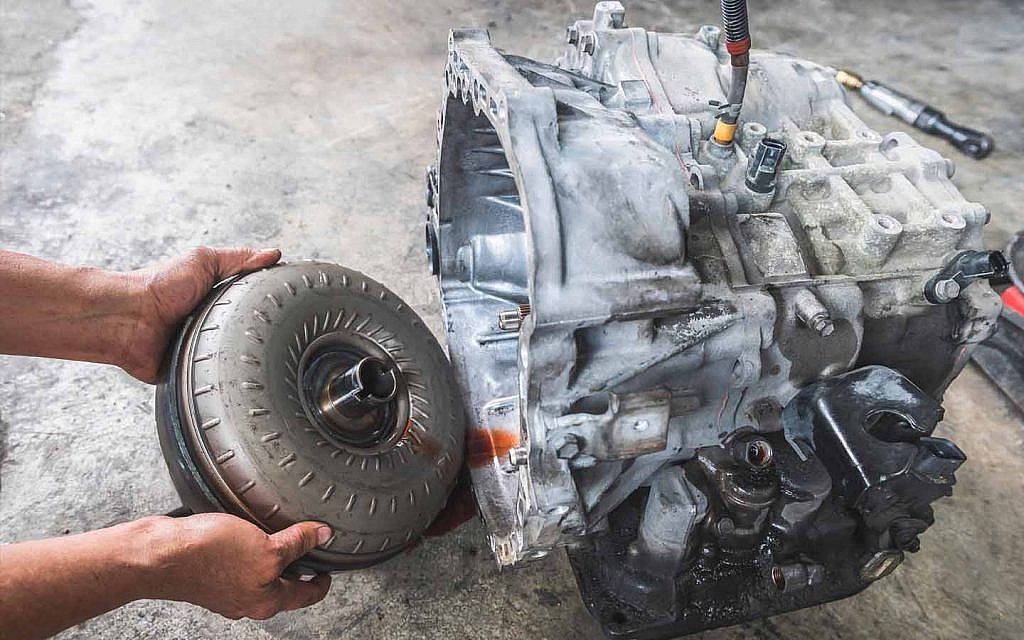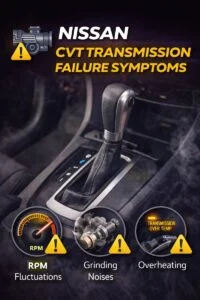Experiencing a car that jerks when accelerating at low speeds can be frustrating and concerning. This issue not only impacts your vehicle’s smooth operation but may also indicate underlying mechanical or system-related problems that need attention.
From minor concerns like dirty fuel injectors to more complex issues such as transmission malfunctions, various factors could be causing this behavior in an automatic car. Addressing the problem promptly can prevent more severe damage and ensure safety on the road.
In this guide, we will delve into the potential reasons for a jerking sensation during low-speed acceleration, how to diagnose the problem, and practical solutions to fix it. Whether you are a car enthusiast or simply a cautious driver, understanding the causes and remedies of this issue can save you time, money, and stress.
Common Causes
1. Dirty or Clogged Fuel Injectors
Fuel injectors play a crucial role in delivering the right amount of fuel to the engine. Over time, these components can become clogged with dirt and debris, leading to uneven fuel flow. This imbalance often results in the car jerking or hesitating during acceleration, especially at low speeds.
- Symptoms: Reduced fuel efficiency, engine misfires, and jerking during acceleration.
- Solution: Cleaning the fuel injectors using an appropriate cleaning solution or seeking professional service.
2. Faulty Spark Plugs or Ignition System
Spark plugs ignite the fuel-air mixture in the engine cylinders. If the spark plugs or ignition coils are worn out or malfunctioning, the engine may struggle to maintain a smooth operation, leading to jerking.
- Symptoms: Poor acceleration, difficulty starting, and uneven idling.
- Solution: Replacing worn spark plugs and inspecting the ignition coils for potential damage.
3. Transmission Issues
Automatic transmissions rely on smooth gear shifts for seamless acceleration. A faulty transmission, whether due to low transmission fluid or mechanical wear, can cause jerking at low speeds.
- Symptoms: Slipping gears, delayed response during shifts, and noticeable jerking.
- Solution: Check the transmission fluid level and quality. If the fluid is low or dirty, replace it. In severe cases, a transmission repair or rebuild may be necessary.
4. Vacuum Leaks
Vacuum systems in cars regulate airflow and other critical functions. A leak in the vacuum system can disrupt engine performance, leading to jerking and hesitation.
- Symptoms: Hissing sound from the engine, poor throttle response, and inconsistent idle.
- Solution: Inspect hoses and connections for cracks or damage and replace any compromised parts.
5. Dirty Mass Air Flow (MAF) Sensor
The MAF sensor monitors the amount of air entering the engine and adjusts the fuel mixture accordingly. A dirty or malfunctioning MAF sensor can lead to improper fuel delivery, causing jerking during acceleration.
- Symptoms: Engine stalling, reduced power, and jerking when accelerating.
- Solution: Clean the MAF sensor using a specialized cleaner or replace it if necessary.
Diagnostic Steps
1. Check the Dashboard Warning Lights
Modern cars often display warning lights for engine or transmission-related issues. A diagnostic scan tool can help identify error codes linked to the jerking problem.
2. Conduct a Visual Inspection
Inspect key components like spark plugs, ignition coils, fuel injectors, and hoses for visible signs of wear or damage.
3. Listen for Unusual Noises
Pay attention to sounds like hissing (indicating vacuum leaks) or knocking (potentially caused by engine misfires).
4. Test the Transmission
Observe gear shifts at low speeds. Any delay, slipping, or unusual noise could point to transmission trouble.
5. Use Professional Diagnostics
If the problem persists, a professional mechanic can perform comprehensive diagnostics, including testing sensors, fluid levels, and electronic systems.
Solutions to Prevent Jerking
1. Regular Maintenance
Routine maintenance, such as oil changes, spark plug replacements, and fuel injector cleaning, can prevent issues that cause jerking.
2. Use Quality Fuel
Low-quality fuel may contain impurities that clog injectors or damage engine components. Using high-quality fuel can improve overall performance.
3. Inspect Fluids Regularly
Ensure the transmission fluid, engine oil, and coolant levels are sufficient and in good condition.
4. Keep Sensors Clean
Regularly clean or replace sensors like the MAF and oxygen sensors to maintain accurate engine management.
5. Seek Professional Help
Address warning signs like jerking or dashboard alerts promptly by consulting a qualified mechanic.
Long-Term Implications of Ignoring the Issue
Failing to address jerking during acceleration can lead to long-term damage to your car, including:
- Increased Wear and Tear: Strain on the engine and transmission can accelerate component wear.
- Reduced Fuel Efficiency: Improper combustion due to clogged injectors or malfunctioning sensors reduces mileage.
- Safety Risks: Hesitation or sudden jerking can compromise safety, especially during critical maneuvers.
- Higher Repair Costs: Delaying repairs may result in more extensive and costly damage.
Cost of Repairs
Repair costs vary depending on the issue’s complexity:
- Fuel Injector Cleaning: $50–$100
- Spark Plug Replacement: $100–$200
- Transmission Fluid Change: $150–$250
- Vacuum Leak Repair: $100–$300
- MAF Sensor Replacement: $200–$400
Regular maintenance can minimize these costs by preventing major repairs.
Conclusion
A car that jerks when accelerating at low speeds is more than just an annoyance—it can indicate significant underlying issues. By understanding the common causes, diagnosing the problem effectively, and implementing timely solutions, you can ensure your vehicle remains safe and efficient.
Proactive maintenance and professional assistance are key to resolving such issues and avoiding long-term complications. Take action promptly to keep your car running smoothly and enjoy a reliable performance on the road.




